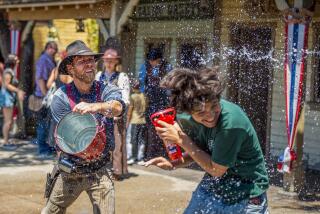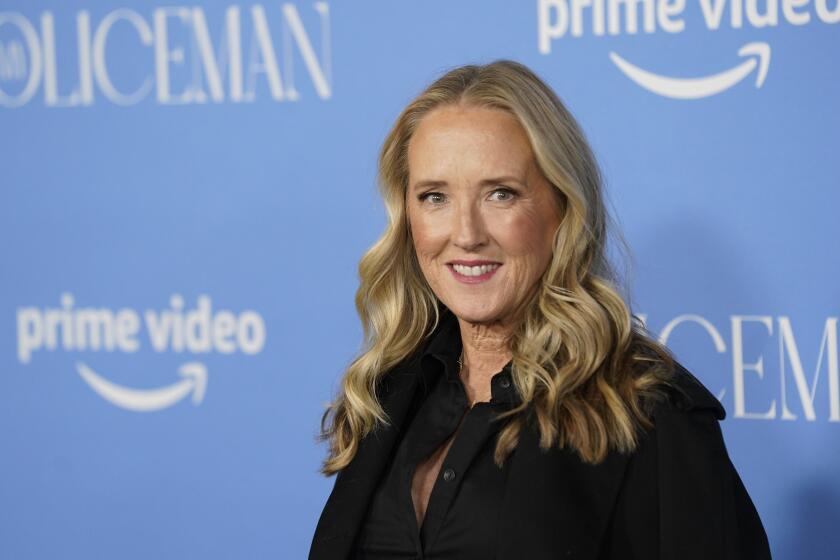Knott’s Suing Windjammer Ride’s Maker
- Share via
Knott’s Berry Farm has sued the manufacturer of its $9-million Windjammer roller coaster, charging that the ride contains serious design flaws that cause it to regularly break down and prevent operations during even modest winds.
The theme park, which is trying to market itself as a mecca for roller coaster enthusiasts, contends in its lawsuit that the Ohio-based maker of the Windjammer failed to properly engineer the ride’s tracks, preventing the barrels of the individual trains from moving properly.
“In some wind conditions as low as 3 mph, the cars will not operate,” the suit, filed last Friday, alleges.
Windjammer, which operates primarily on gravity, was unveiled in 1997 with great fanfare as one of the nation’s relatively few two-track steel roller coasters. It was noted for its 60-foot plunge and swift speed.
But according to Knott’s, problems began to develop within five days of operations, and the park has spent over $2 million for repairs and inspections so far. The suit seeks more than $16 million in damages.
Officials of the Ohio-based Togo International Inc., a subsidiary of a Japanese company and the manufacturer of the ride, could not be reached for comment Tuesday.
Knott’s officials declined to say whether the problems resulted in any injuries for park visitors. The park Tuesday released a statement from General Manager Jack Falfas saying Windjammer “is not up to my expectations mechanically.”
According to the lawsuit, the ride “has been fraught with problems” including misaligned tracks, defective safety restraints and wrinkles in the main frame of the trains.
The suit alleges that the faulty design caused “the ride to self-destruct,” requiring extensive maintenance and repairs.
Windjammer has been closed for several weeks. During a Knott’s promotion for roller coaster enthusiasts from around the country earlier this month, Falfas, an expert in rides and amusement park issues, addressed problems with the ride.
In remarks quoted by enthusiasts and confirmed by officials at the park, Falfas said, “Windjammer is not a ride I want running in the park.” Falfas added that he was negotiating with Togo and believed the site, in a beach boardwalk-themed section of the park, had much potential for future use if Windjammer was removed.
The family of founder Walter Knott sold the park in late 1997 for $245 million to Cedar Fair LP, an Ohio company known for operating hair-raising roller coasters at parks like its Cedar Point. Cedar Fair carried on with a Knott’s plan to build GhostRider, one of the park’s most popular rides, and has also installed or is planning to install several other new major attractions, including a separate water park that will open this summer as well as thrill rides.
Robb Alvey, an aficionado who maintains an Internet site with theme park reviews, said Windjammer was originally hailed as a much-needed “signature” ride at Knott’s.
Billed as a “looping steel racing coaster,” with trains operating side-by-side on separate yellow and red tracks, it was a disappointment from the beginning, Alvey said.
“It looked really pretty,” Alvey said. “But it was not thrilling, and they never really raced the trains side by side. And it beat you up--you bashed your head back and forth constantly against the restraints.”
Knott’s finally closed the yellow track and was able to smooth out the red track somewhat, he said, but the ride never became fun.
More to Read
Inside the business of entertainment
The Wide Shot brings you news, analysis and insights on everything from streaming wars to production — and what it all means for the future.
You may occasionally receive promotional content from the Los Angeles Times.











